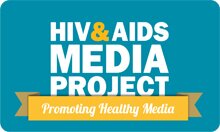2002: Peter Mokaba and the Castro Hlongwane Document
In early 2002, an AIDS dissident lobby group within the ANC circulated a paper purportedly authored by high-level ANC officials which denounced the use of antiretroviral drugs. Entitled Castro Hlongwane, Caravans, Cats, Geese, Foot & Mouth and Statistics: HIV/AIDS and the Struggle for the Humanisation of the African, the 114-page document was written off as "ludicrous" by Dr. Saadiq Kariem, the ANC's health secretary and a qualified epidemiologist.
"I can't imagine anything more farfetched than that," he was quoted as saying in an Associated Press article. The document claimed that presidential spokesperson Parks Mankahlana had died, "vanquished by the anti-retroviral drugs he was wrongly persuaded to consume". It also alleged that South African AIDS icon, Nkosi Johnson, had died of antiretrovirals he "was forced to consume".
The late Peter Mokaba has been cited as the editor of the "collected works", but it has also been alleged that Mbeki had a hand in the document. Mokaba campaigned for the removal of antiretrovirals, saying they were poisonous and that HIV didn't exist. Mokaba also said he had discussed the document with Mandela before its release. Although AIDS policy was a sensitive issue at the time, Mbeki did not attempt to silence Mokaba.
"How can you have a situation where you must ban ideas?" ANC spokesperson Smuts Ngonyama, told the New York Times. "We are coming from a situation in this country where organizations were banned, newspapers were banned, people were banned. Are we returning to that stage now?"
Mokaba also denied having AIDS himself: "I was ill with something in my lungs and there was no HIV. The reason why that story emerged is that people were fighting with President Mbeki and they wanted to use a person who is regarded to be Mbeki's man to say: 'But his own lieutenants are dying of AIDS'," he told The Star. Mokaba died in June 2002 of acute pneumonia amid rumours of an AIDS-related death.






